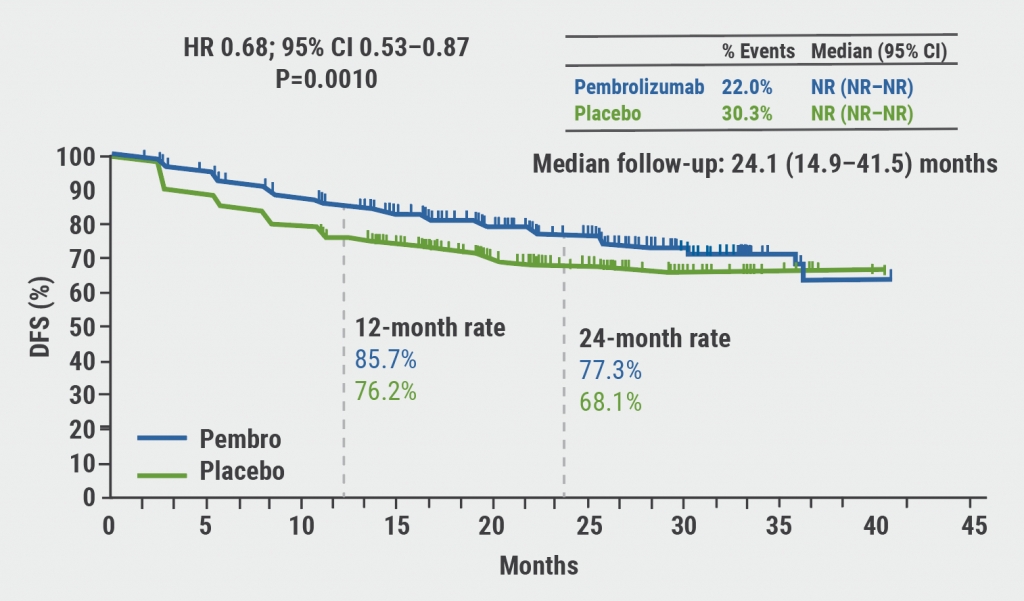“We hypothesised that an accelerated treatment algorithm may shorten the duration of hospitalisation and possibly reduce morbidity and mortality in patients who are treated for large WON, if this approach is compared with the classical step-up approach,” said Dr Gitte Olsen (Copenhagen University Hospital, Denmark) [1]. To test this hypothesis, the investigators designed the single-centre, open-label, randomised ACCELERATE trial. The primary endpoint was a composite of death, major complications (i.e. organ failure, bleeding requiring intervention, perforation of visceral organ or enterocutaneous fistula requiring intervention), and a length of stay of ≥58 days.
Enrolled were 48 adult participants with symptomatic or infected pancreatic WON ≥15 cm, who were randomised 1:1 to the accelerated approach or conventional step-up treatment. All participants underwent trans-gastric drainage with a 20 mm lumen-apposing metal stent. In the accelerated group, an immediate endoscopic necrosectomy was performed in the same session and was continued as needed until the WON cavity was cleared of necrotic tissue. In the step-up arm, further drainage or necrosectomy was only performed if the clinical condition had not improved after 72 hours.
The current interim analysis included 25 participants. Only 8.3% of the participants in the experimental arm had a primary outcome event, compared with 61.5% of the participants in the control arm (P=0.011). The effect was mainly driven by a length of stay ≥58 days (8.3% vs 53.8%; P=0.027) but also by major complications (0.0% vs 46.2%; P=0.015). “After seeing these results, the study was terminated for safety reasons,” mentioned Dr Olsen. Finally, Dr Olsen noted that the mean length of stay in the hospital was only 32.5 days in the experimental arm and 68.5 days in the control arm (P=0.039).
“Although the sample size of the study was small, it appears that an accelerated treatment algorithm reduces major complications and length of stay in the hospital in patients with large WON,” decided Dr Olsen.
- Olsen GA, et al. Accelerated vs step-up endoscopic treatment for large pancreatic walled-off necrosis: Interim analysis of a single-center randomized trial (ACCELERATE trial). LB16, UEG Week 2024, 12–15 October, Vienna, Austria.
Medical writing support was provided by Robert van den Heuvel.
Copyright ©2024 Medicom Medical Publishers
Posted on
Previous Article
« Encouraging results for L-carnitine in non-alcoholic fatty liver disease Next Article
TL1A inhibitor tulisokibart shows potential in ulcerative colitis »
« Encouraging results for L-carnitine in non-alcoholic fatty liver disease Next Article
TL1A inhibitor tulisokibart shows potential in ulcerative colitis »
Table of Contents: UEGW 2024
Featured articles
Tamuzimod delivers promising long-term data in ulcerative colitis
CULTIVATE: Good signal for etrasimod in Crohn’s disease
Online First
Upadacitinib associated with normalisation of HRQoL in UC
Diagnostic accuracy of fluorescence confocal laser microscopy after EUS-TA
New insights into perianal fistulising CD pathogenesis may lead to new therapeutics
TL1A inhibitor tulisokibart shows potential in ulcerative colitis
An accelerated treatment approach may save lives in pancreatic walled-off necrosis
Encouraging results for L-carnitine in non-alcoholic fatty liver disease
LOVE-CD: Vedolizumab yields better outcomes in early than in late CD
Tamuzimod delivers promising long-term data in ulcerative colitis
Cendakimab meets primary endpoints in eosinophilic oesophagitis
How useful is colonoscopy for constipation in young women?
Guar gum alleviates IBS-related constipation in randomised-controlled trial
CULTIVATE: Good signal for etrasimod in Crohn’s disease
Meaningful corticosteroid-sparing effect of mirikizumab in UC
Is FMT a viable option to treat primary C. difficile infections?
Extending ustekinumab dosing interval does not influence drug survival in IBD
TACITO: Does FMT improve ICI plus VEGFR TKI therapy in mRCC?
© 2024 Medicom Medical Publishers. All rights reserved. Terms and Conditions | Privacy Policy
HEAD OFFICE
Laarderhoogtweg 25
1101 EB Amsterdam
The Netherlands
T: +31 85 4012 560
E: publishers@medicom-publishers.com


